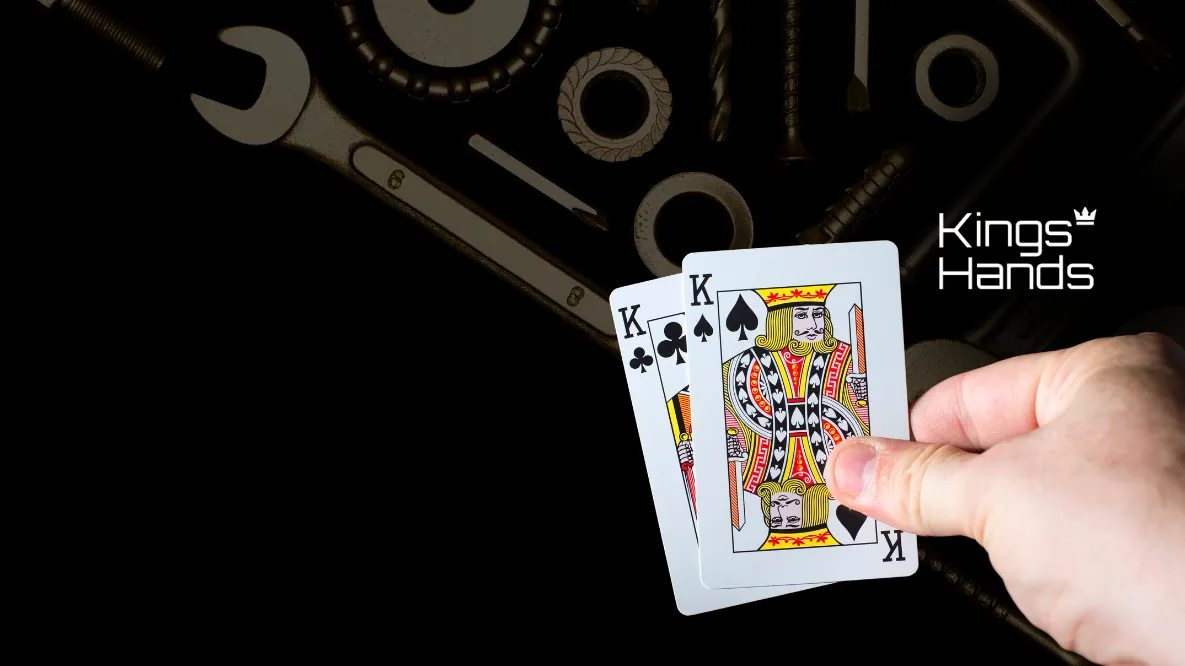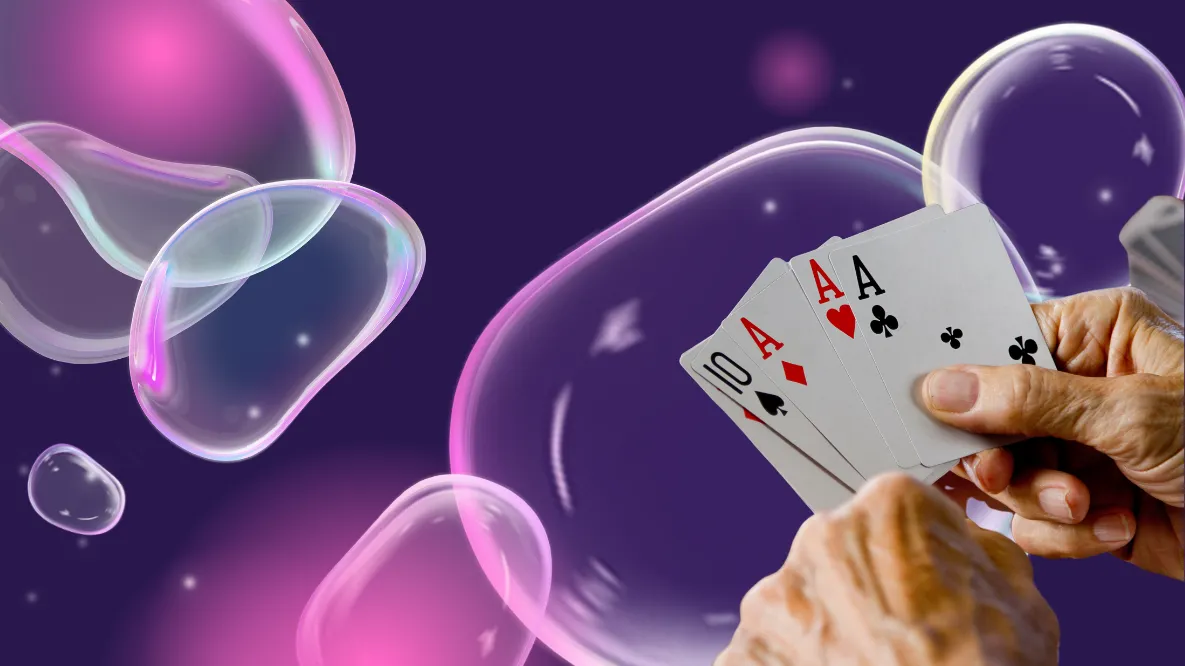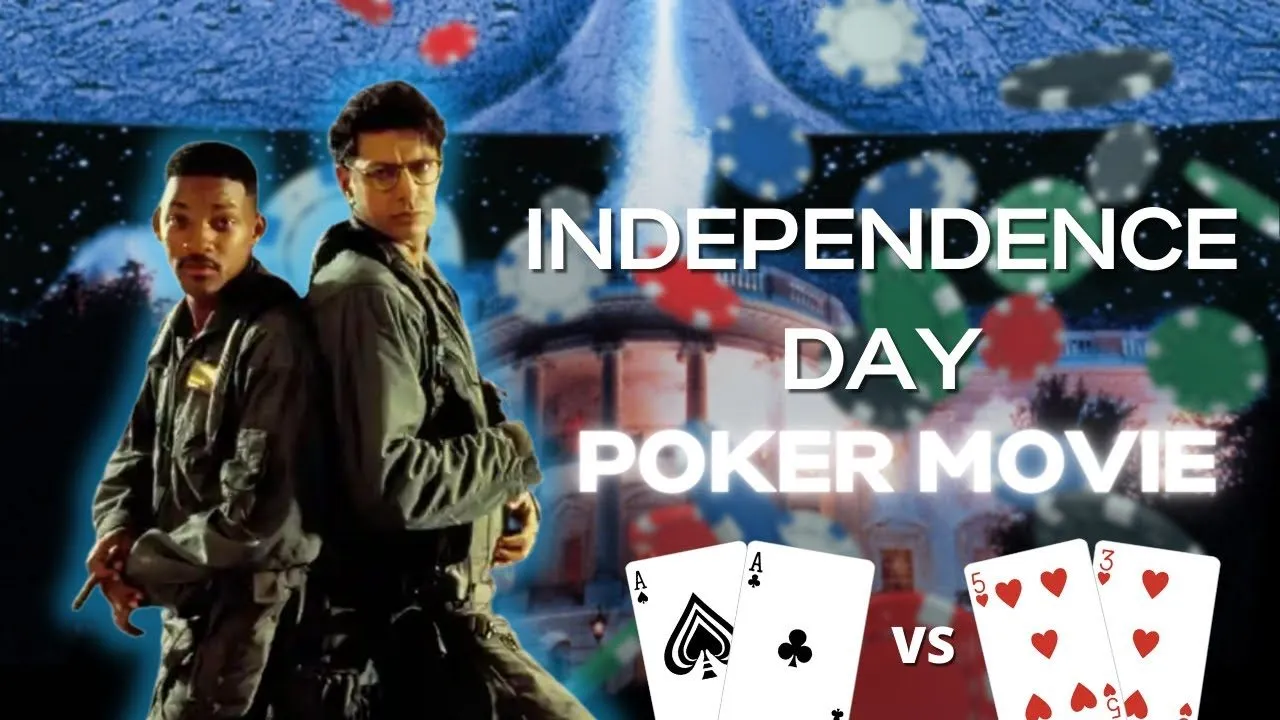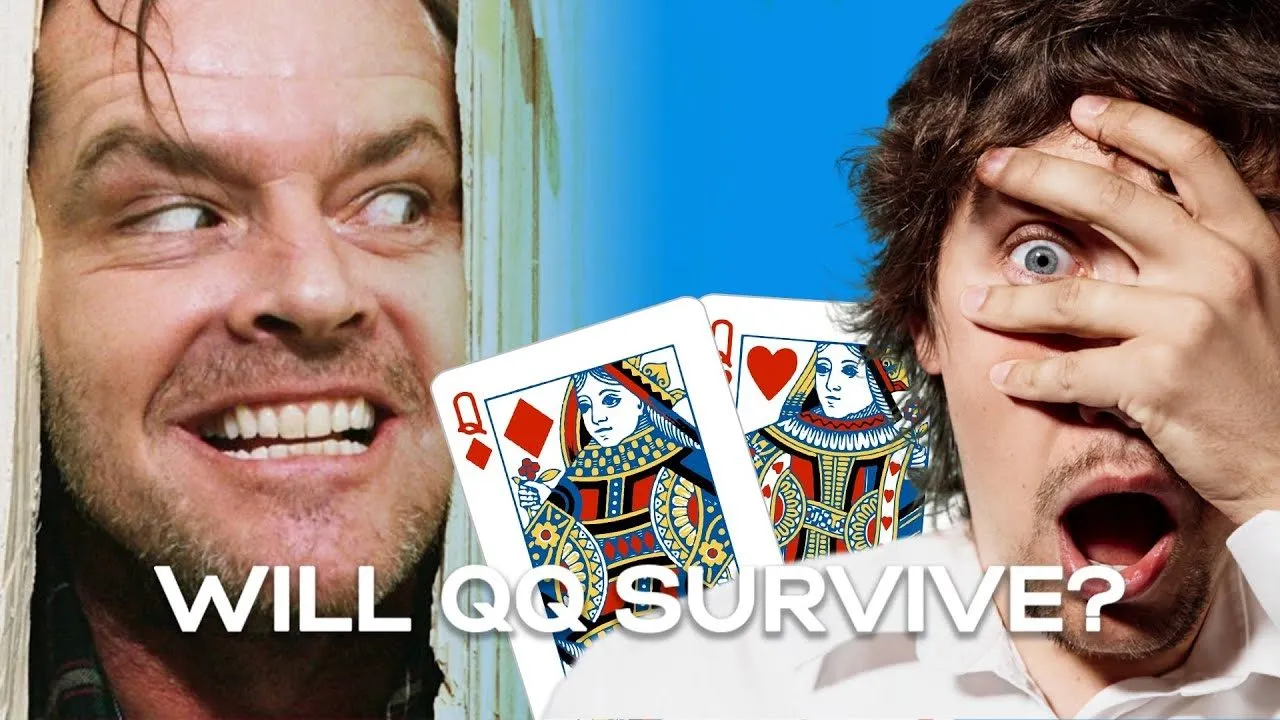Sometimes things will happen at the poker table that put you under tremendous pressure, as Hellmuth jovially references in this Tweet, and however experienced you are, these spots will come – it might be a bigger game than usual, a deeper run than you’ve ever had, a sicker bad beat than you’ve faced before – these intense pressure points are part of the fabric of the game, they’re sewn in.
How we deal with them, however, is very much up to us. Indeed, there are some players out there who need very little pressure applied before they lose all composure (mentioning no names), but whatever stage we’re at with our mental state, it will be the pressure moments that test us. Anyone can be tilt-free when running like God, but what about when you’re deep in the hole, running cold and you just got a lifeline, a deep run at the Main only to have your dreams crushed by a 1-outer on the river for a chip lead stack?
These are the moments that test a person. The work you do on yourself today is your gift to the future you who will face these moments (and to the folk around you, who have to live with you!).
So instead of wishing to burn down the venue in which your bad beat occurred, let’s look at how to cool our inner fire, whilst recognizing that we’ll never get it perfect, since we are human beings, and that’s okay.
What is Tilt?
Tilt is a term you hear in poker but rarely anywhere else, and it was coined from quite a different game – pinball. It refers to the times in playing on an arcade pinball machine when the player will physically try to tip or shake the table to influence the ball’s movement. This would be a desperate effort indeed at a poker table, but we all know the feeling, when you just want to flip that whole table upside down!
Tilt however encompasses a whole range of sub-optimal mental states in poker. It isn’t restricted to pure rage mode, the most extreme form of hard tilt. It can extend from the most obvious to the most subtle failings in our mental attitude. In this article we’ll divide into two broad categories, and look out for our upcoming second part of this series on tilt, which explores some more outlier varieties.
Hard Tilt
Hard tilt is your classic type, and many players only consider this in its most obvious form, those moments when the red mist descends and we are simply angry. No-one can think clearly when enraged, and many are the stories on the poker forums of players smashing their mouse against the wall or throwing their laptop across the room. We must admit – poker can be stressful, especially when moving up to the higher stakes, but there are solutions available!
Some players sit through years of problems with hard tilt before deciding to work on their mental game but the tools are available, in fact freely available. In our How the **** Can I Stay Positive? guide we go over some of the key reasons poker players sometimes don’t feel able to start working on their mental game, so if that applies to you, go ahead and give it a read.
Hard Tilt really encompasses any emotional state which involves an abrupt enough change of mood for us to notice it. If you’re more conscious of your state of mind, thanks to working on improving your overall awareness, you’ll notice these changes as they start to occur, at which point you are still clear-headed and only mildly irritable. At this stage it is much easier, once you recognise a tilt response, to let go of it far more easily.
The same course of action is recommended for dealing with any Hard Tilt response, whether it is rage, severe despondency, despair, hatred or fear. Spot it coming, and detour around it. If you’re already in the middle of it, walk away if you can. If it’s cash, sit out and take a break. It’ll take time to simmer down.
Recognise the seeds of the change, remember your intention to not get caught up in that feeling, breathe, release, and aim to move as authentically as possible on to the next moment, the next hand and decision point.
We’re not trying to deny the feeling, or make believe that we’ve already got beyond it if we haven’t, we are just aiming to hold as lightly to it as we possibly can, whilst continuing to pay attention to what’s going on around us and to our next decisions.
The main damage from Hard Tilt isn’t the initial feeling anyway, it’s the cascade of poor decisions which follow. The techniques covered in this course aim to nip it in the bud. Ten or twenty minutes of daily meditation should set you off on a fine path towards greater self-awareness at the poker tables.
Soft Tilt
Soft Tilt is something every poker player suffers from to some degree.
Whilst I’m going to suggest a very similar cure for Soft Tilt as for its rougher cousin Hard Tilt, the symptoms are very different.
Soft Tilt is any set of shifts in mental or emotional state which occur, as it were, beneath the surface of our conscious attention. These might be shifts which take place whilst playing poker, or alternatively shifts which have already occurred through the day prior to even sitting down to play.
The kind of states I’m speaking about here run the spectrum of sub-optimal states of mind, from simple lack of concentration, to boredom, mild annoyance, tiredness, stress, or any number of other states which can sneak up on your, creep in from the edge of your vision and generally inch up unnoticed like a slow leak until you suddenly realize you’re ankle-deep in water.
Soft tilt is the slow decay of your A-game, of slipping out of being in the zone, and it happens for a myriad of avoidable reasons.
Sometimes in the moment we cannot avoid the cause, such tiredness. This is simply something that happens, which will slowly worsen over a late session, and gradually impinge on our game.
The solution? Simple in this case, and practical, get into better sleeping patterns. We’ll speak more on this and other lifestyle adjustments in a future piece.
The answer in the short-term is to simply not sit a session when you are overly tired.
For that matter, the same goes for other physical conditions such as playing hungry, dehydrated, or when feeling unwell.
What we’re focused on today is more so the inner aspects which can lead to drifting off from our A-game. Drift itself is also built-in, no creature has an infinite attention span, and practical measures are again helpful, such as regular breaks and getting up from the computer chair.
Various aspects of our own state of mind will accelerate our drift however, and cause us to lose focus very early on in our sessions, or even never to gain any deep focus in our play in the first place.
If we go into a session stressed, or we’re taking too many shots out of our bankroll, or we have pressing matters to deal with in real life which we’re avoiding by sitting a poker session, we are in a sub-optimal mental context and in truth it is going to be very hard for us to be genuinely deeply focused on our game and in the zone.
If we are doubtful about our own ability or stressing about immediate financial outcomes of the session this will also very clearly undermine how well we can execute our A-game, and how we’re going to feel during a session.
How we feel going into a session is very related to how well we’re going to perform, to what we’re going to learn during a session, to how we’re going to deal with both bad beats or any unforced errors we make on our own part.
How we respond to challenging environments or outcomes in a poker session is a really good measure of where we are at with our mental game. Keeping track of how we feel, and what our mental goals are for the session is really key to avoiding switching all of this onto autopilot and ignoring it, when it will really undermine our game big time.
So once again, whatever the cause of our mental “drift acceleration”, whether mild frustration, stress, life issues, distraction or just bad habits around doing focused work, each of these will undermine our game if we don’t stay conscious of it. Just recognising these elements as they arise, and mentally acknowledging them will allow this to become less of an issue, and we can support this inner work using practical measures such as those mentioned above.
The Key
The work we do to deal with these sources of error is just to practice certain simple techniques which will allow us to become more conscious and more aware, both of what is going on around us (in life, and in poker) and of our own states of mind.
If you’ve enjoyed this article, or would like to know more, come talk to us about it in the PokerDeals Discord!
Image courtesy of PokerGO.com





















